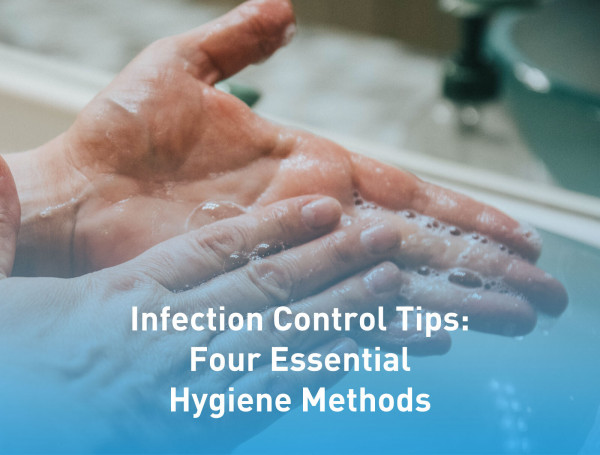With a new lockdown on the way for England, many businesses are unfortunately having to close their doors once again. Whether you’re in the category of businesses who will be closing their doors on the 5th November, or you're required to stay open, now is the time to assess infection control in your establishment and maintain essential hygiene practices for staff and customers, both now and when business returns to normal.
Even though it’s crucial to be following the right procedures for hygiene at any time, it is especially important for those who are working with the ill, elderly or the young - those who are most vulnerable. Employers must assess the risks in their environments and put the right measures in place to prevent any spread of infection.
To make sure we keep Coronavirus at bay, we need to ensure we’re following four essential hygiene practices:
1. Wash hands, surfaces and equipment regularly
Washing hands thoroughly has been highlighted a lot over the past year, and it’s still as important to regularly wash hands for at least 20 seconds with soap and water. Hupfer offers a variety of hand-washing products to meet hygiene requirements, including soap dispensers and hand wash basins.
Surfaces and equipment also need regular disinfection after use and at scheduled intervals throughout the day to prevent any spread of bacteria. Making this a daily habit will provide staff and customers with peace of mind that you’re doing all you can in times of uncertainty.
2. Review waste disposal methods
Whatever your industry, you’ll have processes in place for waste disposal. Review these methods and assess any changes you need to make to prevent any further spread of the virus. PPE should be disposed of sensibly and is the employer’s responsibility to ensure measures are in place to do this safely.
Additional bins for staff and customers should be accessible and should be emptied regularly to prevent overflowing and litter. More information about PPE disposal can be found on the GOV website.
3. Re-evaluate processes for food hygiene
As well as normal hygiene methods, there’s also a lot to consider in catering, and just how you approach food hygiene in the kitchen. Make sure you’re always adhering to the Food Safety Act and follow the recommended hand washing, surface and equipment cleaning procedures.
It’s also important to follow social distancing measures and wear the correct PPE in this environment. Even though restaurants will be forced to close over the coming weeks, take away services will continue. If you need upgraded catering equipment to help keep up with demand over the coming month, speak to the Hupfer team and take a look at our range.
4. Invest in sanitising and disinfecting products
With more cleaning being carried out day to day, it’s essential to make sure you have the necessary sanitisation and disinfection products available at all times. As well as this, you need to make sure you can use these products safely to avoid unnecessary contact.
One product we’d recommend for this purpose is our universal holder for pump bottles. It’s very simple to operate and requires no hand contact whatsoever - it is conveniently operated with your elbow alone. This means there is a heavily reduced risk of passing on germs and gives peace of mind that you are doing your part in protecting yourself and others.
Infection control is a crucial part of how we run our businesses
We all need to play our part in keeping ourselves and each other safe. For more information about our catering and medical hygiene products to help prevent the risk of infection, get in touch with the Hupfer team or take a look around our website.

